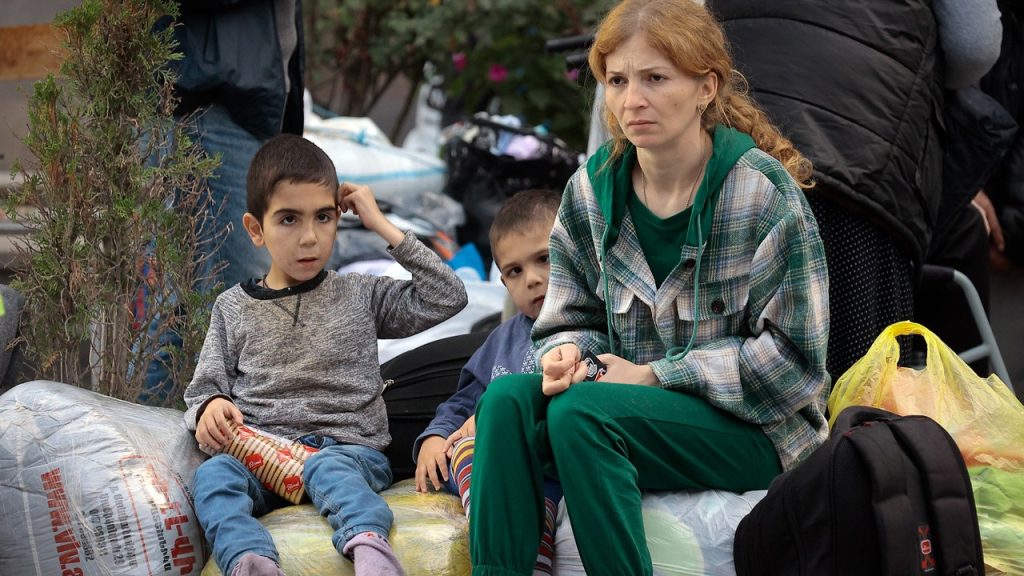Armenia and Azerbaijan have taken steps towards normalizing relations after a bitter conflict over territory, with experts from both countries working to demarcate their boundaries and the placement of the first border marker. The two nations are working towards a peace treaty following Azerbaijan’s regaining of full control of the Karabakh province that had been held by ethnic Armenian forces since the 1990s. A six-week war in 2020 resulted in Azerbaijan reclaiming large parts of the breakaway region, and in September 2023, Azerbaijani forces launched a lightning blitz that led Karabakh’s Armenian authorities to capitulate in negotiations mediated by Russian forces.
Recently, Armenia and Azerbaijan agreed on a border that would divide four Armenian villages in the Tavush province, resulting in Armenia ceding some territory to Azerbaijan. The first border marker was installed, although its exact location was not immediately revealed. In response, protests erupted in Armenia, with demonstrators blocking roads in the proposed border region and setting up roadblocks on key routes, including one leading to neighboring Georgia. Despite the tensions, Azerbaijani President Ilham Aliyev stated that Baku and Yerevan were moving closer to a common understanding of what a peace agreement might look like.
Armenia’s prime minister stressed the need to quickly define the border with Azerbaijan to prevent a new round of hostilities. Many residents of Armenia’s border regions have opposed the demarcation efforts, viewing them as encroachment by Azerbaijan on areas they consider their own. Russia, the mediator in the conflict, began withdrawing its forces from Karabakh last month, where they had been stationed as peacekeepers under a truce brokered by Moscow following the 2020 war. The peacekeepers had played a role in ensuring free passage on the only road connecting Karabakh with Armenia, which Azerbaijan began blocking in late 2022.
As a result of the blockade, Karabakh experienced severe food and medicine shortages, prompting Azerbaijan to launch its offensive. Following Azerbaijan’s complete control of Karabakh, the majority of its nearly 120,000 population fled to Armenia, despite Azerbaijan’s assurances of their safety and rights. The situation remains delicate, with continuing protests in Armenia over the border demarcation process and ongoing discussions between Armenia and Azerbaijan towards a potential peace agreement. Overall, there are signs of progress towards normalizing relations between the two neighboring countries who have a long history of conflict over territory.


